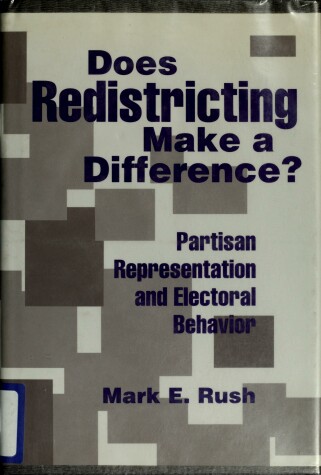In 1812, the Jeffersonian-dominated Massachusetts legislature, with the approval of Governor Elbridge Gerry, split Essex County in an effort to dilute the strength of the Federalists. Noting the resemblance of the new, oddly-shaped district to a well-known amphibian, a local newspaper dubbed the creation a "gerrymander". Less well known about this episode of American history, writes political scientist Mark Rush, is its outcome: in the ensuing election, the Federalists won the district anyway. Today, political divisive redistricting - gerrymandering to some - still causes bitter reapportionment disputes, renewed threats of class action lawsuits and legislative wrangling. In this book, Rush offers a sceptical inquiry into this controversy and a critical assessment of the assumptions underlying current analyses of the redistricting process. He focuses on long-term voting results in redrawn districts and concludes that redistricting - at least given present criteria and guidelines - has little impact. By showing how difficult it is to perpetrate a successful partisan gerrymander, Rush challenges the notion that an electorate can be organized into Democratic and Republican "groups".
He further questions the validity of current political research - and highly-paid political consulting - undertaken on the assumption that such organization is feasible.
- ISBN10 0801845793
- ISBN13 9780801845796
- Publish Date 1 September 1993
- Publish Status Out of Stock
- Out of Print 31 March 2000
- Publish Country US
- Imprint Johns Hopkins University Press
- Format Hardcover
- Pages 232
- Language English
